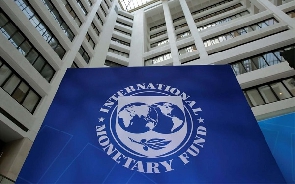 The International Monetary Fund
The International Monetary Fund
The Executive Board of the International Monetary Fund (IMF) has agreed to increase the multilateral institution’s medium-term reserves given the sharp increase in financial risks since 2018.
On Friday, January 8, 2021, the 24 Executive Directors of the IMF agreed to increase the Fund’s Special Drawing Rights (SDR) – the IMF’s own unit of currency – of SDR 20 billion ($29 billion) to SDR 25 billion ($36 billion), representing an increase of SDR 5 billion or $7 billion.
The review of IMF’s SDR reserves – delayed by a few months to permit an assessment of the impact of the Covid-19 pandemic – showed a significant increase in the Fund’s credit exposure and related risks since its last review in 2018, compounded by the pandemic.
“Credit outstanding has nearly doubled, including a surge in emergency financing without conditionality, and commitments under precautionary arrangements are higher than at the last review,” the IMF said in a statement.
IMF also noted that credit had become more concentrated and scheduled repurchases were larger. The current target for precautionary balances of SDR 20 billion ($29 billion) was also likely to drop below the indicative range in 2021 and 2022.
Given these developments, directors agreed to keep the minimum floor for precautionary balances — which include general and special reserves and a special contingent account — at SDR 15 billion ($22 billion) and raise the medium-term target to SDR 25 billion ($36 billion), while continuing to monitor the situation carefully.
Some Executive Directors according to the IMF, pushed for a higher SDR reserves, but most of the Executive Directors were of the view that there was no current need for the Fund to accelerate the pace of reserve accumulation, noting the program design, conditionality, lending policies, and the Fund’s preferred creditor status also help limit the IMF’s risk exposure.